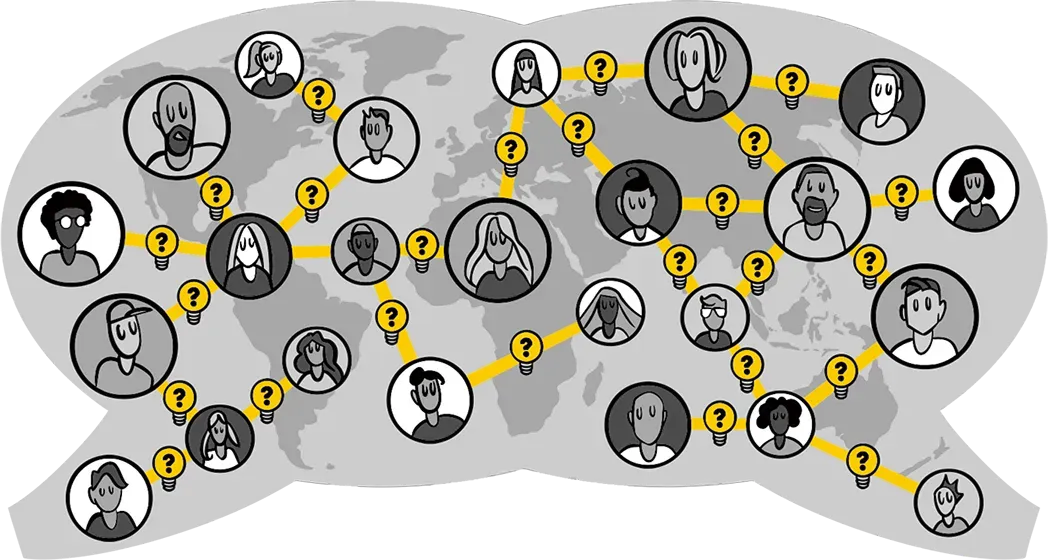Refining Reasoning and Epistemology Methods
Enhance Your Critical Thinking and Evaluate Claims Effectively

How Street Epistemology Improves Reasoning and Epistemology
Street Epistemology (SE) provides tools to critically examine and refine the methods used to evaluate truth claims. By focusing on the quality of reasoning and the reliability of epistemological frameworks, SE encourages individuals to assess their thinking processes and develop stronger, more reliable reasoning techniques. This helps ensure that beliefs are grounded in valid reasoning and supported by reliable evidence.
SE challenges assumptions, encourages critical thinking about epistemology, and promotes constructive dialogue around complex reasoning processes. Through the use of reflective questioning and epistemological exploration, SE enhances the clarity and validity of the methods we use to assess claims and knowledge. For more details on applying these techniques, explore the practical application of this approach.
Find the Best Fit for You
You've landed on a page about Street Epistemology, a way of helping people reflect on the quality of their reasoning through civil conversation. Take our free self-paced course called Navigating Beliefs or learn more about the organization behind these world changing projects.

Navigating
Beliefs
Take the free self-directed course, designed to teach you Street Epistemology at your pace. Improve engagements and refine reasoning and equip you with the skills to engage in meaningful, civil conversations.
What is Navigating Beliefs?
What will I learn?
How do I start?

Street Epistemology
International
The organization behind the development of the Navigating Beliefs course, supporting Street Epistemology's practice and offering resources for critical thinking and civil conversation.
Street Epistemology International?
How can I support SEI?
What resources does SEI offer?
Explore SE strategies for assessing reasoning reliability and refining epistemological assumptions.

Applying Street Epistemology to Epistemology and Reasoningf
Street Epistemology offers practical techniques for evaluating the quality of reasoning and examining epistemological claims. By critically assessing reasoning methods, identifying flaws in belief systems, and refining epistemological assumptions, SE practitioners can improve the reliability of their reasoning and enhance their ability to assess knowledge claims.
SE provides tools for examining the validity of reasoning processes, exploring the reliability of belief systems, and investigating methods for evaluating evidence. These techniques promote clarity and objectivity, ensuring that beliefs are justified by strong reasoning and reliable methods. SE helps individuals refine their thinking to better align with truth and rationality. For additional perspectives on this, explore the varied approaches used in SE.
Exercises for Refining Reasoning and Epistemology
Refining reasoning methods and epistemological frameworks requires practice, and SE offers a variety of exercises designed to strengthen these skills. Those interested in developing their analytical abilities can access comprehensive learning materials and guides to support their practice. Activities like evaluating the reliability of reasoning methods, analyzing epistemological assumptions, and questioning the validity of claims help practitioners improve the accuracy and reliability of their thinking processes.
For beginners, tools for assessing the validity of reasoning and evaluating epistemological claims offer accessible entry points. Advanced practitioners can explore methods for refining reasoning techniques, testing epistemological principles, and exploring the reliability of belief systems. These exercises encourage intellectual growth, clarity, and a deeper understanding of how we know what we know.

Free Learning Course for Refining Reasoning and Epistemology
Ready to improve your reasoning and evaluate claims effectively? The Navigating Beliefs course offers Street Epistemology tools to assess reasoning reliability, challenge epistemological assumptions, and refine methods for evaluating truth claims.
GO TO COURSE ➔


